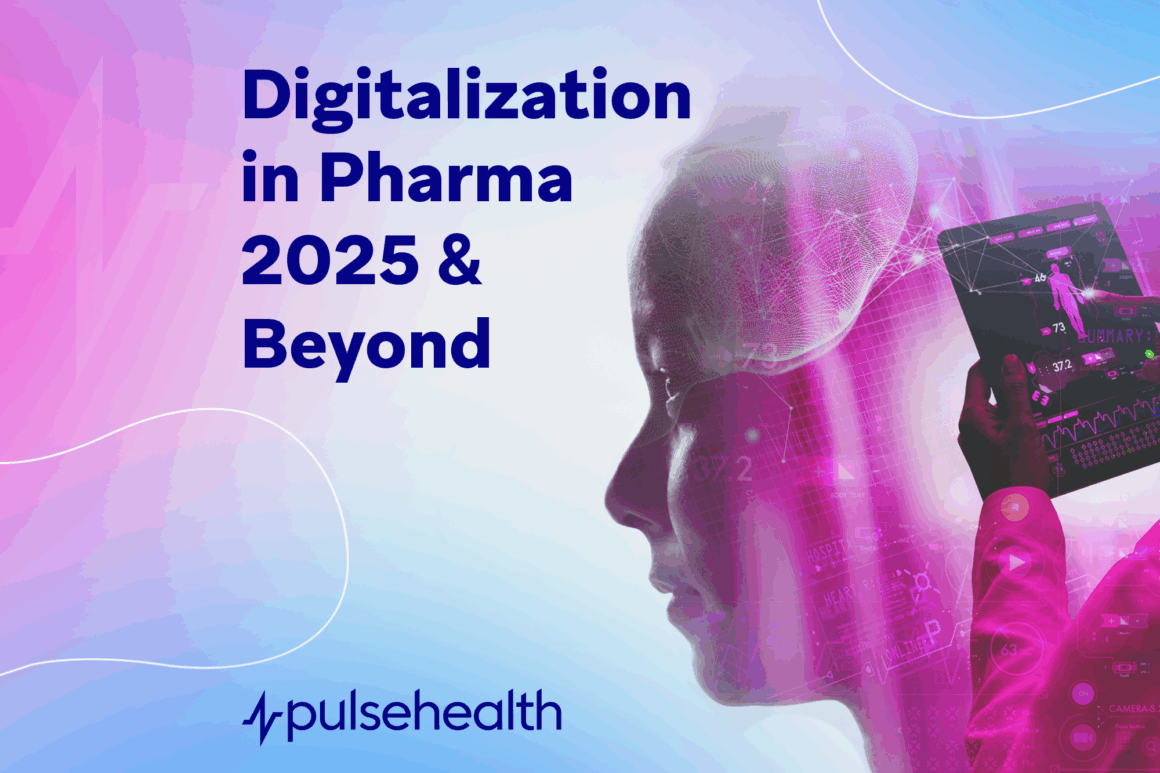Trends, Technologies, and Tactics Driving a New Era of Drug Development and Patient Engagement
In 2025, digitalization is propelling the pharmaceutical industry into overdrive, sparking major shifts from the lab bench to the pharmacy shelf. Cutting-edge tools are streamlining drug discovery, automating manufacturing lines, and transforming how clinical trials run—making them faster, safer, and more patient-focused.
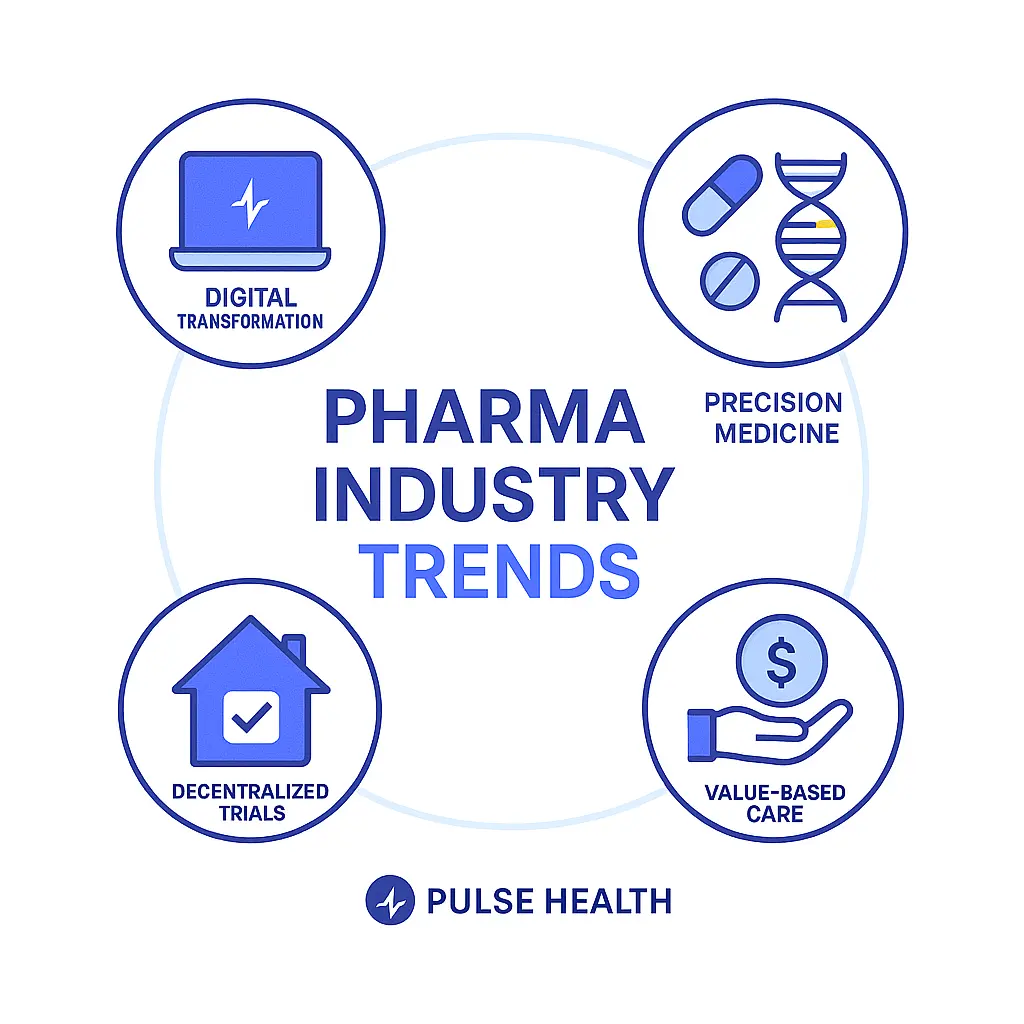
On the commercial side, everything from virtual detailing to data-driven marketing campaigns is reinventing how companies connect with healthcare providers and patients.
As these technologies reshape every corner of the pharma world, Pulse Health stands out as your go-to partner for omnichannel marketing, digital engagement strategies, and advanced analytics that turn data into actionable insights.
Research and Development (R&D)
Pharmaceutical R&D is undergoing significant digital transformation. Central to this shift is the adoption of artificial intelligence (AI) and machine learning (ML), substantially accelerating drug discovery processes.
The number of AI-driven drug discovery alliances has increased dramatically, from merely 10 in 2015 to over 105 by 2021, signifying the growing trust and dependence on digital tools in R&D (source).
Analysts predict that AI could add $350–$410 billion in annual value to the pharma sector by 2025 (source).

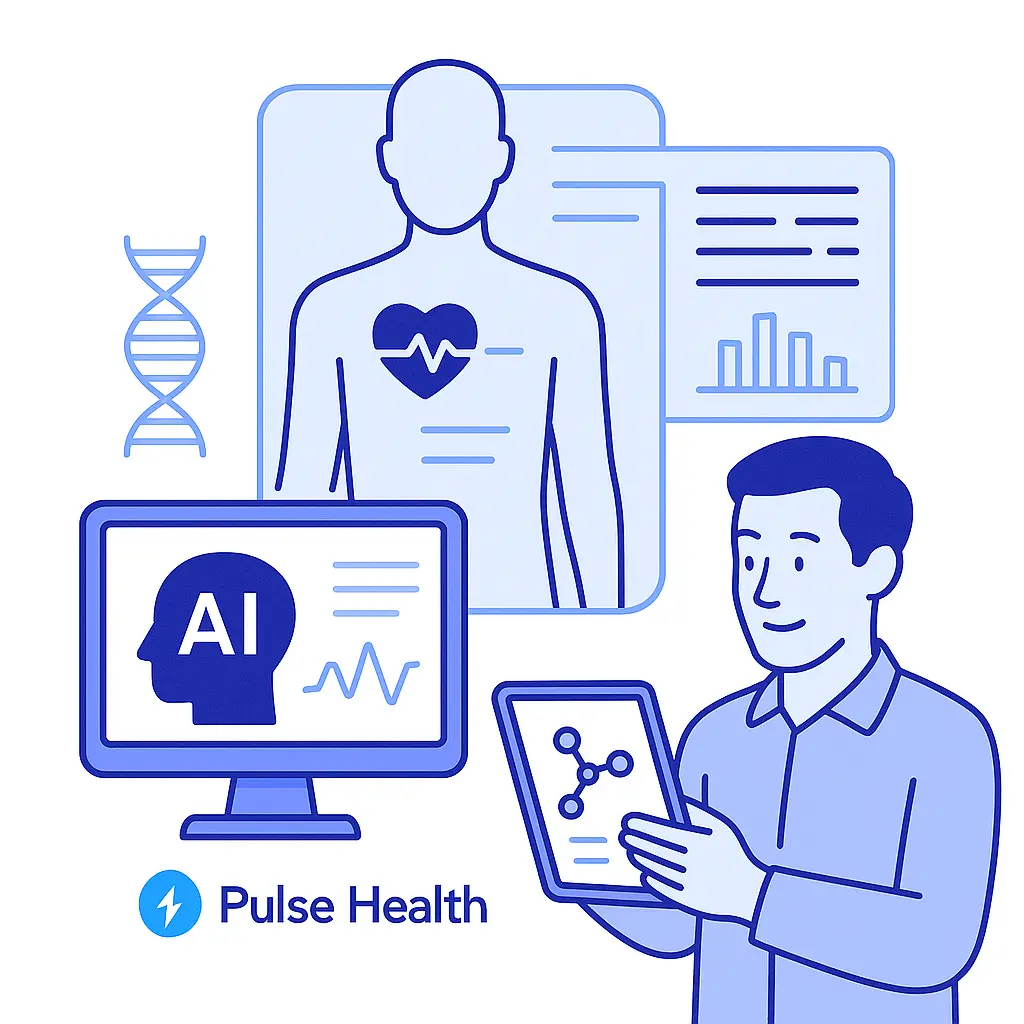
Digital twins and advanced simulations have also become prevalent.
Companies like Sanofi utilize digital twins—virtual replicas of human physiology—to predict drug efficacy, thus significantly shortening development timelines (source).
Tools like AlphaFold are now used to predict protein structures and aid molecule design before lab synthesis (source).
Multimodal data integration is another area gaining traction.
Over half of pharma executives are prioritizing the integration of real-world evidence (RWE), genomic data, and patient-reported outcomes into early-stage R&D (source).
Companies like Janssen are leading the charge with platforms like Trials360.ai, which use AI for everything from molecule design to patient recruitment (source).
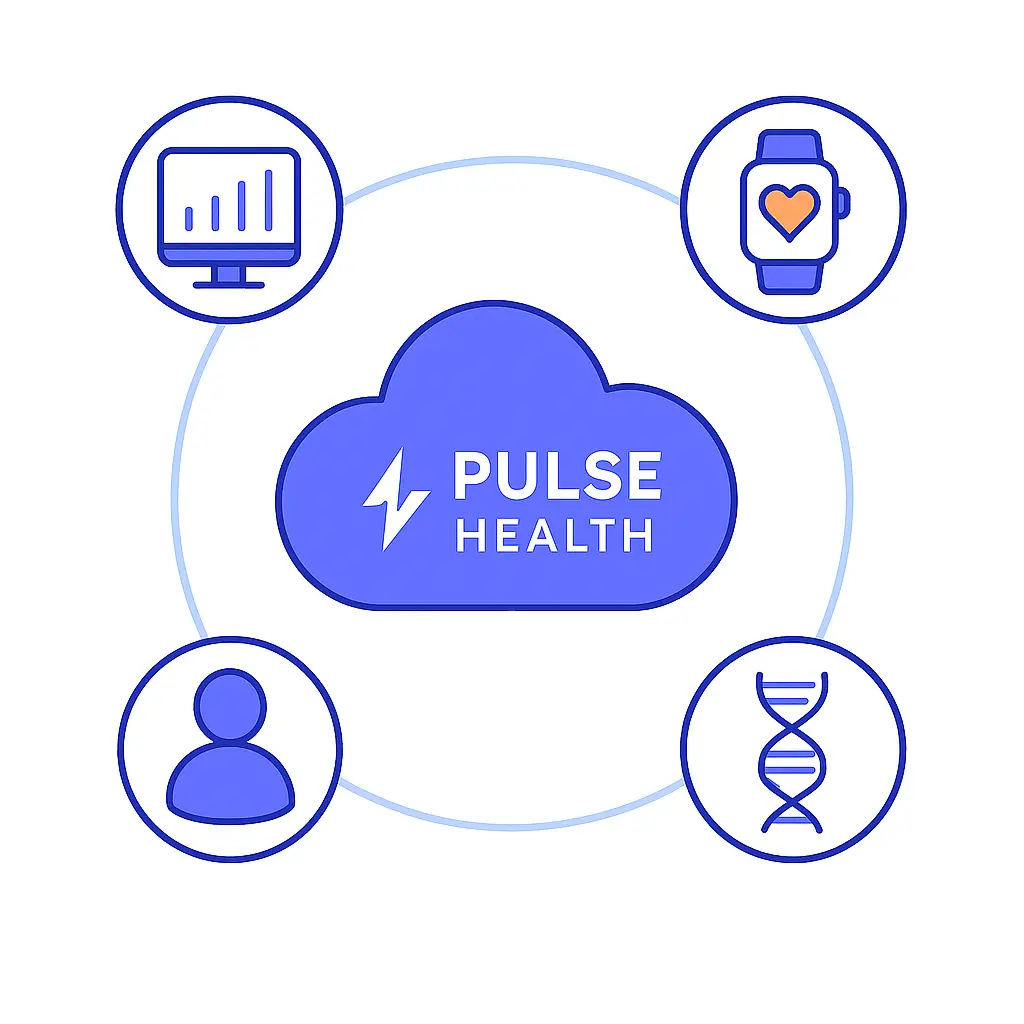
Here are a few of the most common types of multimodal integration, along with the main benefits of each:
- Real-World Evidence (RWE): Electronic health records, insurance claims, and disease registries providing insights into how therapies perform in everyday practice
- Genomic & Biomarker Data: Patient-specific sequencing and molecular profiles that guide precision drug design and patient stratification
- Patient-Reported Outcomes: Surveys, digital diaries, and mobile app inputs capturing quality-of-life metrics and symptom progression
- Imaging & Digital Pathology: Radiology scans and tissue slide analyses feeding into AI models for earlier detection and response assessment
- Wearables & Sensors: Continuous streams from smart devices monitoring vitals, adherence, and activity levels to inform adaptive trial protocols
Pulse Health’s robust analytics capabilities offer significant value here. By facilitating integration between commercial data and R&D insights, Pulse enables pharma companies to better predict market success and streamline portfolio decisions.
Manufacturing: Embracing Pharma 4.0
Pharmaceutical manufacturing in 2025 is largely defined by “Pharma 4.0,” a concept rooted in connectivity, automation, and real-time analytics. IoT sensors, robotics, and advanced analytics are creating agile, efficient production environments. For instance, IoT enables predictive maintenance, significantly reducing downtime and improving production consistency (source).
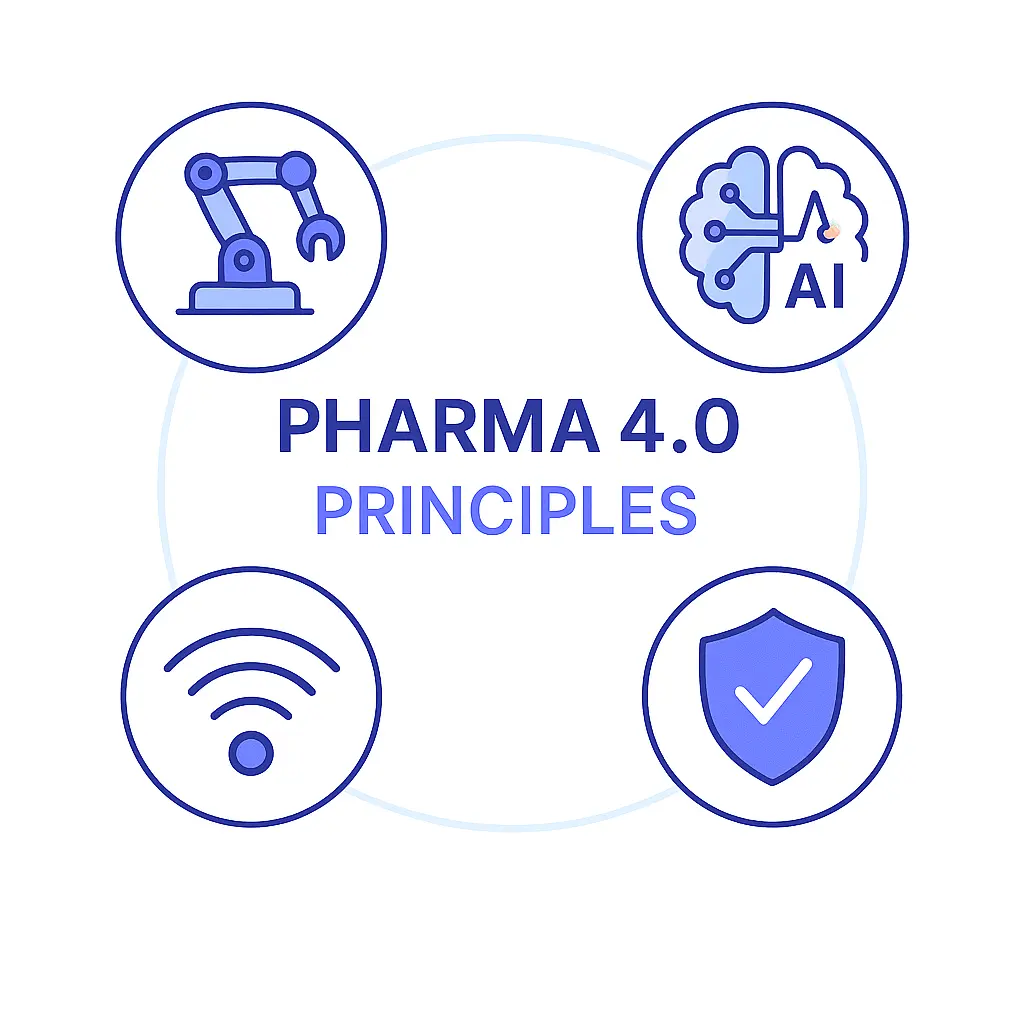
Companies like Pfizer and Johnson & Johnson have integrated advanced automation and digital twins to predict equipment failures and optimize production lines proactively (source).
Modular manufacturing facilities are also becoming more common, allowing for rapid reconfiguration to produce different drugs—including biologics and personalized therapies (source).
Digital twins extend to entire production lines, enabling simulation of process changes before implementation. Augmented reality (AR) and virtual reality (VR) tools are being used to train plant workers and troubleshoot machinery (source). Blockchain is being piloted for drug traceability under the DSCSA, helping prevent counterfeiting (source).
Though manufacturing is not directly within Pulse Health’s primary scope, the interconnected nature of digital pharma means Pulse can provide valuable cross-functional analytics—integrating supply chain insights with commercial and marketing strategies, ensuring optimized inventory management and targeted healthcare provider (HCP) engagements.
Revolutionizing Clinical Trials
The clinical trial sector has undergone perhaps the most significant digital evolution, accelerated by the COVID-19 pandemic’s impetus toward decentralization. Decentralized Clinical Trials (DCTs) leveraging telemedicine and remote monitoring have become standard practice, significantly increasing patient participation and diversity (source).
AI’s role in clinical trials extends beyond patient recruitment. Platforms like Janssen’s Trials360.ai exemplify how AI optimizes trial design and patient enrollment, significantly cutting down timelines and operational costs (source).
Predictive analytics can identify optimal trial sites, match patients based on electronic health records, and monitor data quality in real time through risk-based monitoring.
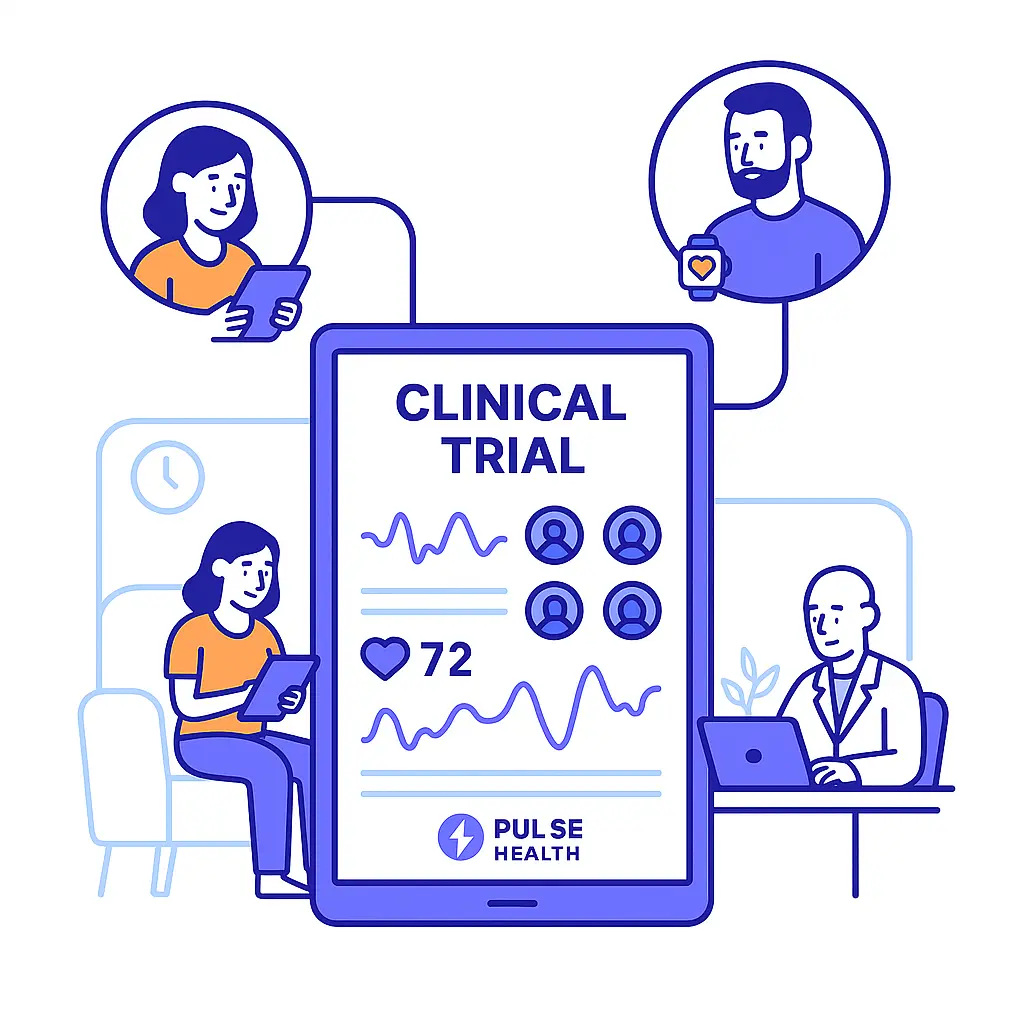
Synthetic control arms—using historical patient data instead of new placebo groups—are now reducing the number of participants needed, improving ethics and speed. Unlearn.AI, for example, has reduced required control patients in Alzheimer’s trials by 35% (source).
Pulse Health’s expertise in digital engagement is ideally suited for enhancing participant recruitment and engagement, leveraging targeted, personalized communication strategies to maintain patient interest and adherence throughout clinical trials.
Digital Therapeutics (DTx): A New Frontier
Digital Therapeutics, software-based interventions used in managing health conditions, have rapidly matured. By 2025, DTx have expanded beyond mental health and diabetes into oncology, cardiovascular care, and neurological disorders, receiving considerable FDA attention and reimbursement clarity from CMS, significantly driving adoption (source).
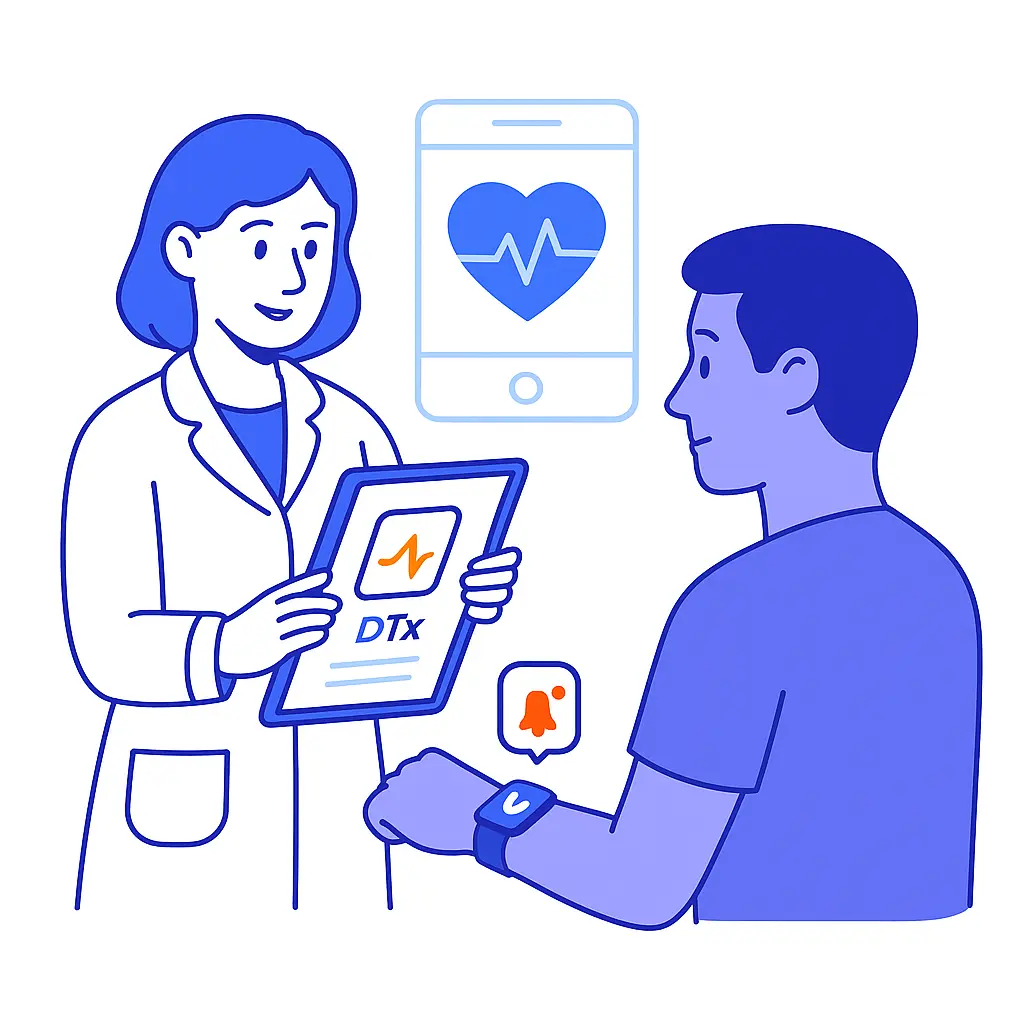
In 2025, the FDA has cleared more than 35 DTx across a range of conditions, and CMS introduced new reimbursement codes for digital therapies focused on mental health (source).
Providers increasingly prescribe DTx through integrated Electronic Health Records (EHRs), and patient engagement is supported via automated alerts and outcome tracking platforms.
Major pharma players like Click Therapeutics and Otsuka are showing how rigorous randomized trials can lead to mainstream acceptance of software-based treatments (source).
Pulse Health is uniquely positioned to support this integration, offering advanced analytics and digital engagement tools that optimize provider adoption and patient adherence, ensuring maximum clinical and commercial success.
Commercial & Sales: The Omnichannel Imperative
By 2025, pharmaceutical sales and marketing have widely adopted omnichannel strategies—integrating digital outreach with traditional face-to-face interactions. Advanced Customer Relationship Management (CRM) systems leverage AI to deliver personalized, timely communications, vastly improving sales efficiency and physician engagement (source).
AI tools now predict physician preferences, optimize content delivery across channels, and automate next-best-action strategies—boosting rep productivity and making campaign ROI more measurable than ever before.
Combined with emerging digital biomarkers that provide real-time insights into patient response, these innovations are transforming the precision and impact of pharma engagement.
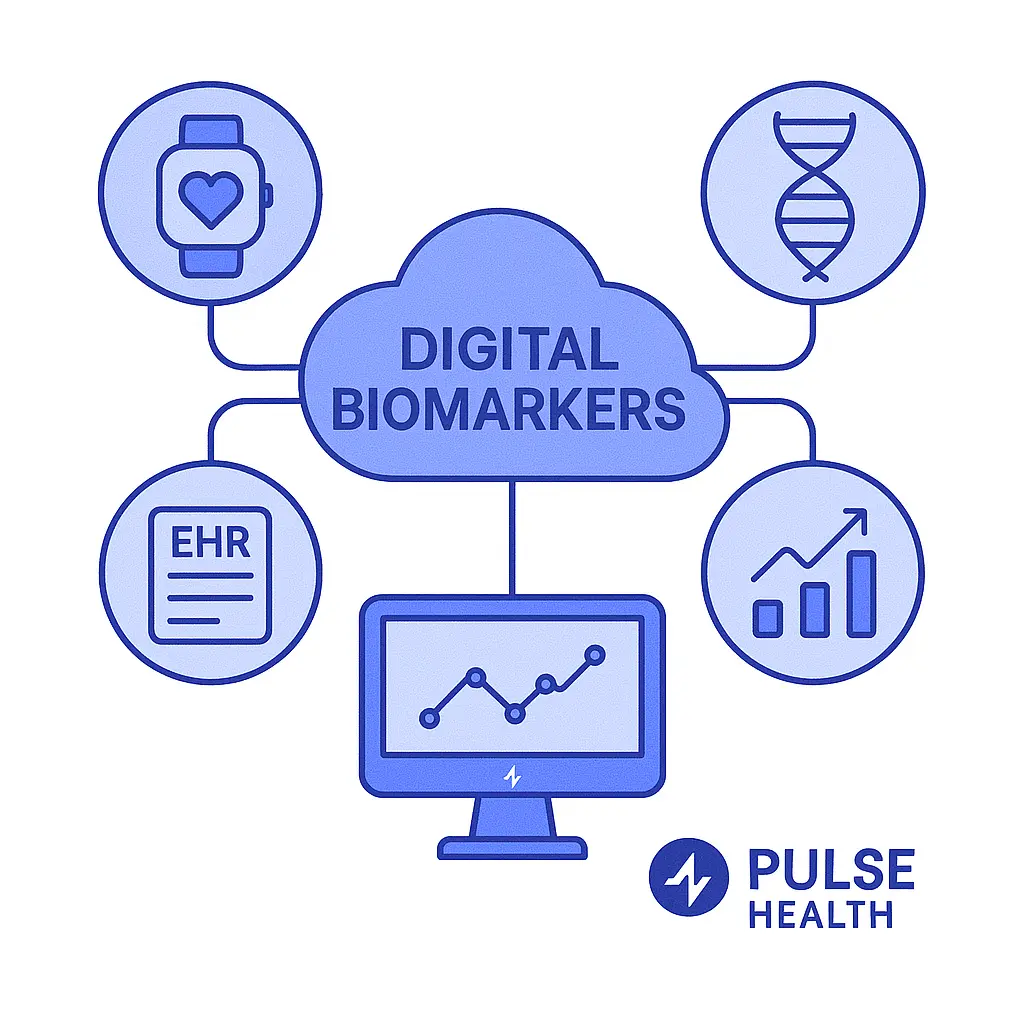
Pulse Health excels in this domain, providing sophisticated digital engagement and analytics solutions that enable pharma companies to target and interact with HCPs effectively. Pulse Health’s proprietary CRM tools offer precise analytics, enabling proactive, data-driven strategies that dramatically improve commercial outcomes and ROI.
Regulatory Landscape and Challenges
As digital tools become integral, regulatory bodies like the FDA have actively evolved to accommodate innovation, including creating guidelines for AI in clinical development and manufacturing (source). The Software Pre-Certification Program and Good Machine Learning Practices are among the initiatives to support AI/ML products.
However, challenges remain, particularly regarding the transparency of AI models (the “black box” problem), ensuring data integrity, cybersecurity, and complying with 21 CFR Part 11 for electronic records (source).
Training AI models with biased or incomplete data also raises ethical and scientific concerns.
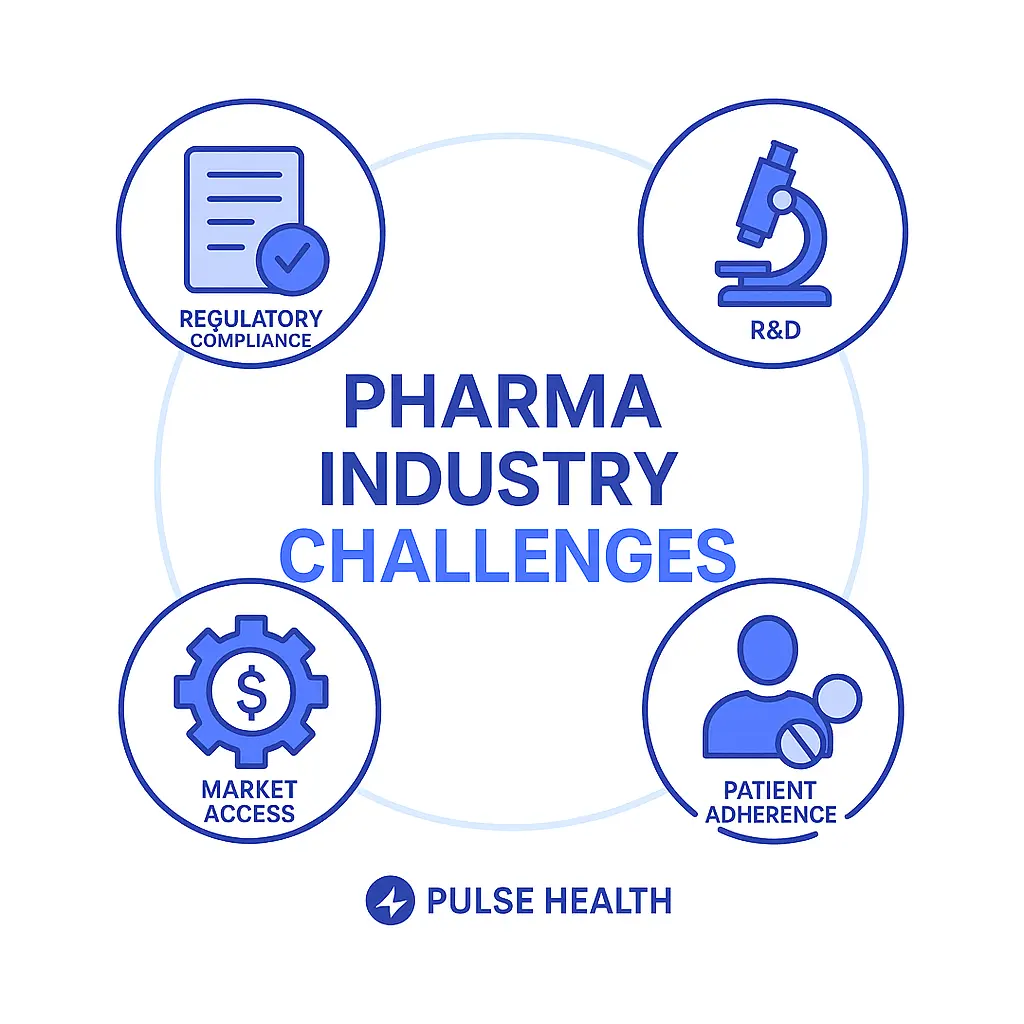
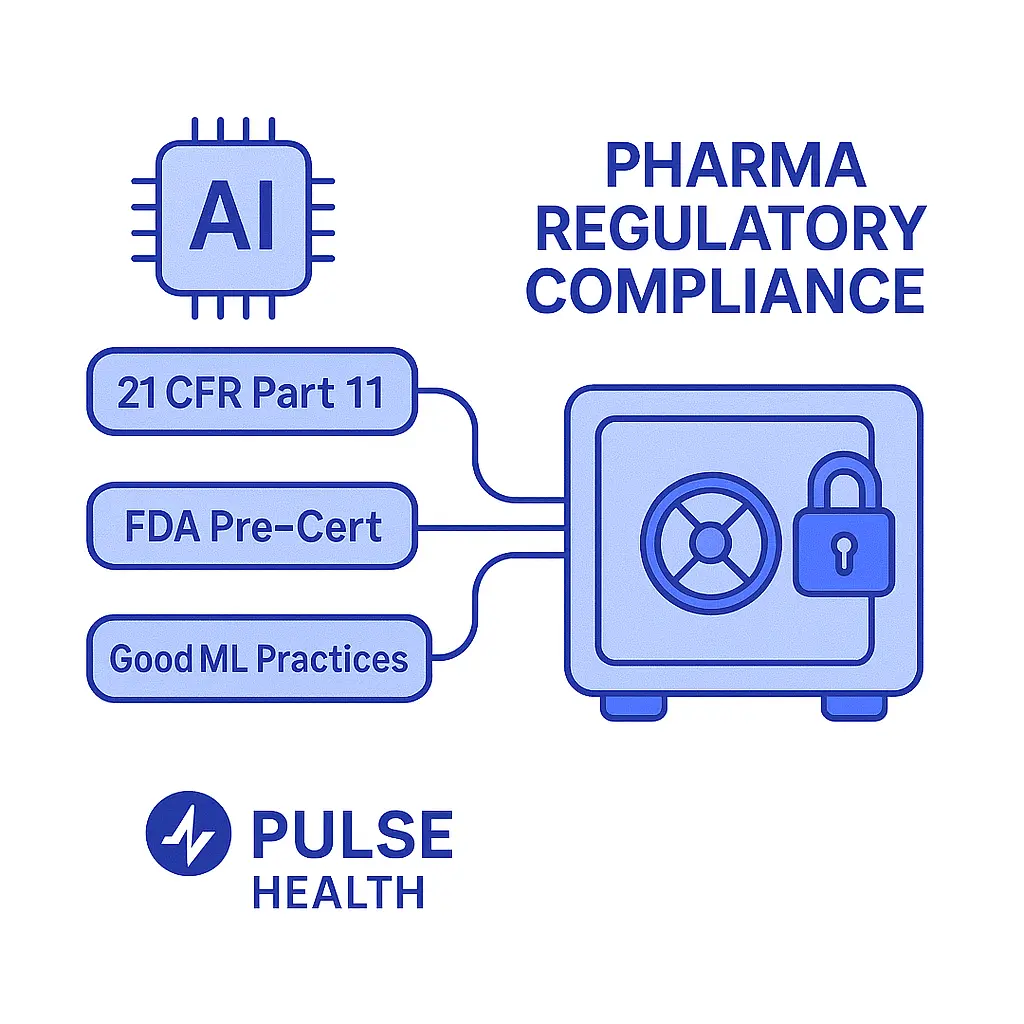
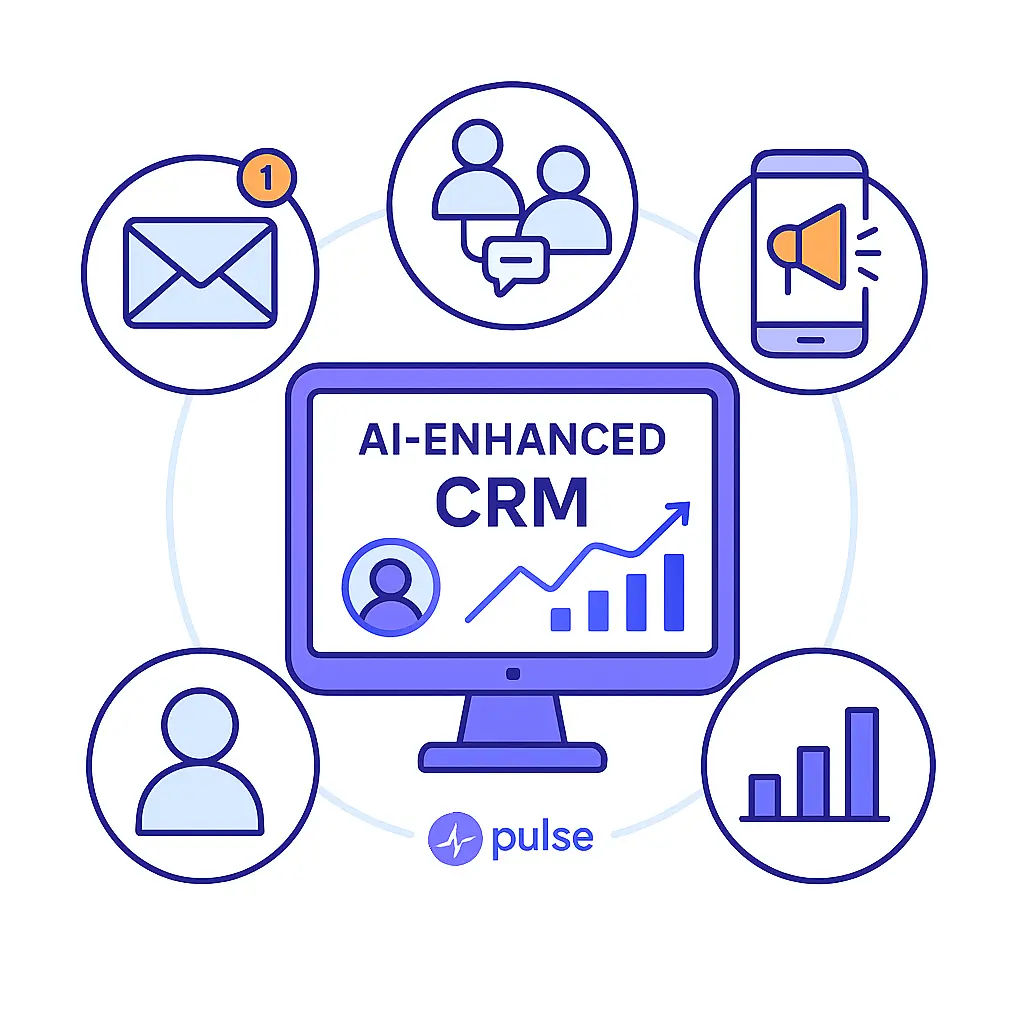
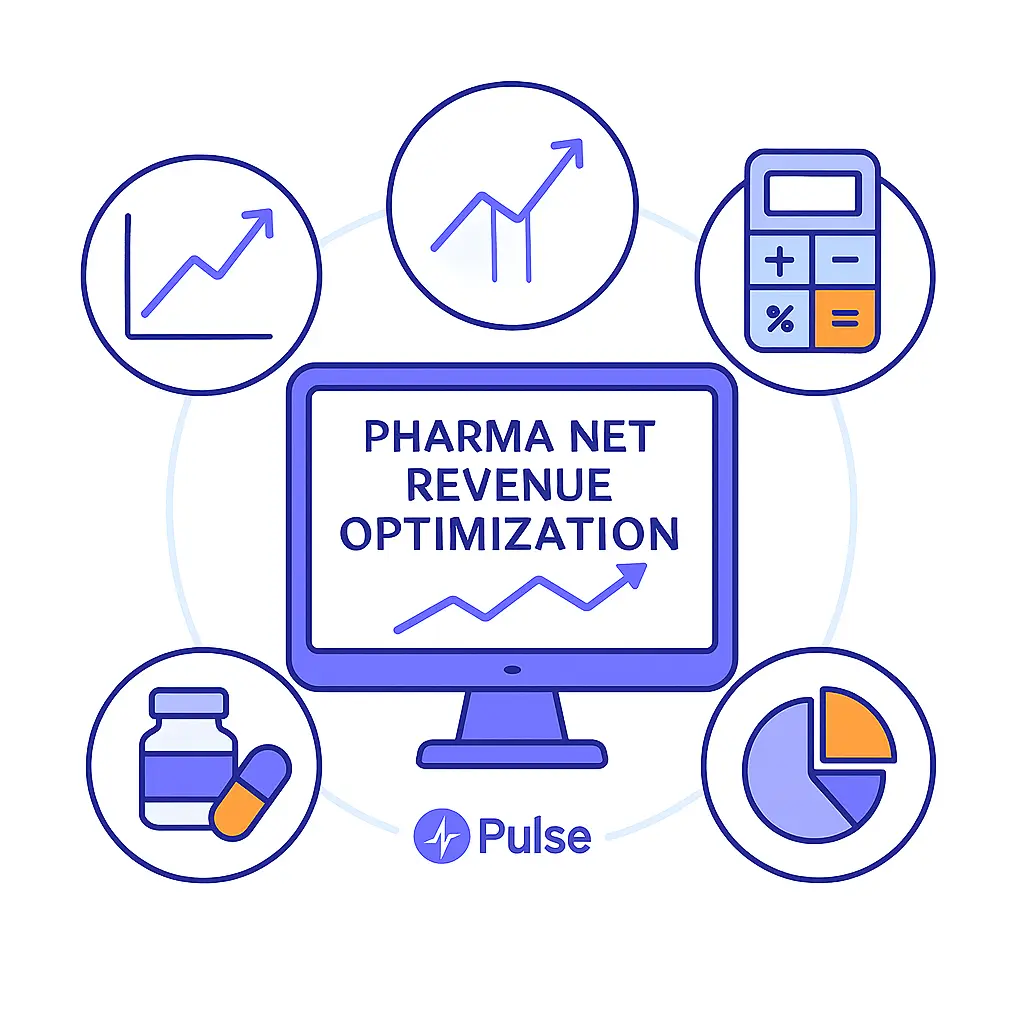
Pulse Health helps pharma companies navigate these complexities, providing compliant, secure digital platforms and data analytics tools that meet stringent regulatory requirements while maximizing the value derived from digital strategies.
Looking Ahead: The Pulse Health Advantage
The ongoing digital transformation in pharma offers unprecedented opportunities to improve drug development efficiency, personalize patient care, and optimize commercial strategies. Pulse Health stands as a critical partner, offering:
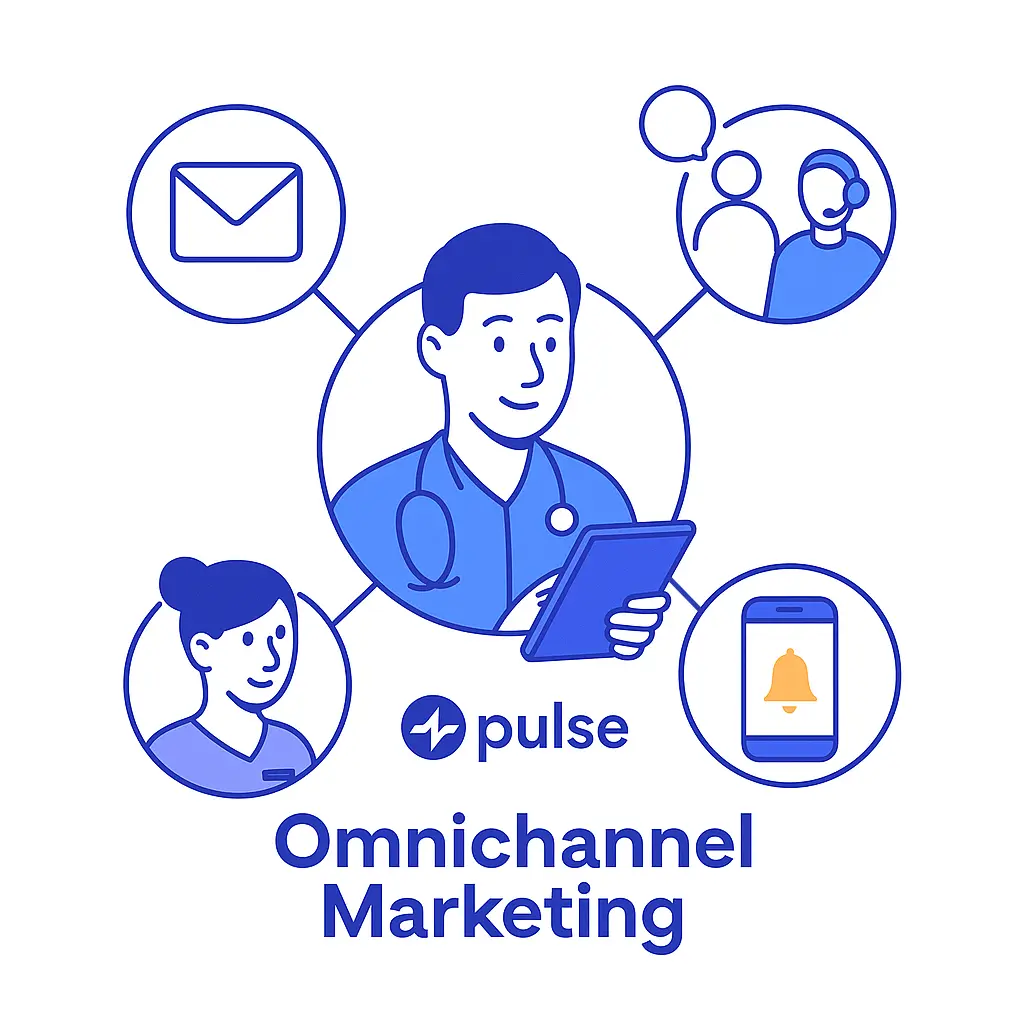
- Advanced analytics to bridge silos between R&D, manufacturing, and commercial operations.
- Digital engagement solutions that enhance clinical trial participation and improve HCP interactions.
- Robust omnichannel marketing and CRM analytics that drive targeted, personalized commercial outcomes.
By effectively harnessing the power of digitalization, pharmaceutical companies can achieve substantial gains in efficiency, innovation, and market competitiveness. Pulse Health, with its extensive expertise and specialized solutions, is perfectly positioned to support pharma companies in realizing these digital opportunities, ensuring sustainable growth and improved patient outcomes in this new digital age. Schedule a demo with us today to learn more.
